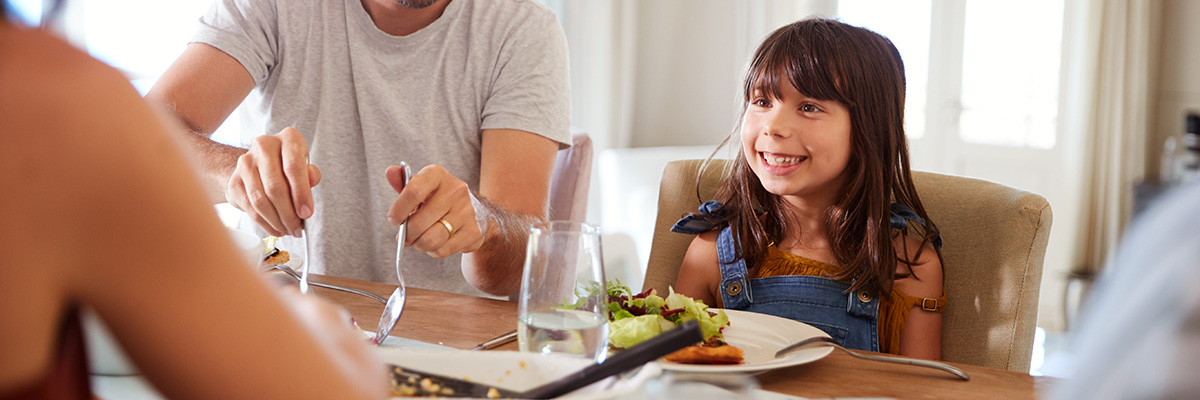Article at a Glance
- Studies have found grateful people enjoy better health, improved sleep, healthier relationships, and more satisfaction.
- Gratitude is not a product of our surroundings, but something we can control.
- Teaching your children gratitude will help them do better in school and in life.
It turns out that Thanksgiving Day has a lot more going for it than turkey and pumpkin pie. The holiday focuses on one of the most important traits we can cultivate in ourselves and our kids—gratitude.
Studies from multiple universities have found that those who are grateful benefit from better health, improved sleep, less anxiety, less depression, healthier relationships, less aggression, more satisfaction from life, more empathy, and a lower risk of heart attacks.
And studies show grateful teens do better in school, are less likely to use drugs and alcohol, have more friends, are more pleasant to be around, and have fewer behavioral problems.
How do you cultivate gratitude in your children in a world that is so full of entitlement?
The good news is that gratitude is not a product of our surroundings, but of our choices. You can learn to be grateful regardless of how much you have or what else may be happening in your life. Gratitude is a choice and it is something that can be learned.
Here are some things you can do to help both you and your children learn to be more grateful:
Be a Model of Gratitude:
- Point out what different family members do to serve the family and others and how that makes you feel. For example, telling your children how much you appreciate your spouse not only increases your gratitude, but theirs too. You can point out things as simple as always taking out the trash, doing the dishes, or coming home with a smile.
- Model how to say please and thank you—and how to appropriately ask for things. For example, when they grumpily ask when dinner is going to be ready, teach them to instead say something like, “Thank you for working so hard.” It helps take the focus off feelings of entitlement and instead teaches them how to notice what others are doing for them.
- Let them help you do chores. The more children help with cleaning up and chores, the more they will value what others do for them.
- Leave your child a thank you note (or better—mail it!) expressing why you appreciate them.
- Keep a gratitude journal. It only takes a few minutes, but studies show writing down three to five things you are grateful for each day can help your mood and stress. Let your kids see you doing it and give them some paper to start their own journal—even it’s just drawings at first.
Gratitude-Based Family Activities:
- Thanksgiving Tree: During November, some families like to create a “Thanksgiving tree” to display all that they are grateful for. Each family members add a leaf each day with something they are grateful for written on it.
- Encourage Service: Find ways to serve family members and others. Let your children see you engaged in service and allow them to help. As your children get older, help them find causes they are passionate about and help them get involved.
- Play the “Gratitude Spotlight” game: Pick one child (or your spouse) and have everyone say why they are grateful for him or her. Children absolutely love this positive reinforcement.
Keep Gratitude Going All Year
Remembering to foster gratitude is more than holiday endeavor. Use these tips to help make your entire year happier and healthier.
- Remind Yourself to be Grateful: Try writing some of your blessings down on sticky notes and post them around the house where you can see them. Or set an alarm and give yourself time during the day to stop and count your blessings.
- Change Your Focus: Work on focusing more on people and experiences and less on things. The holidays and birthdays are a great time to practice this. Instead of talking to your kids about what presents they are going to get, focus on things like family and traditions.
- Make Time for Gratitude: Make sure your kids have enough time to stop and contemplate. It is hard to find time to enjoy the small things in life if you are hurrying from one activity to the next. Show your kids through your example how to stop and notice the wonderful things about life.
- Look on the Bright Side: It is an old saying, but when life gives you lemons, make lemonade! Instead of focusing on the negative, focus on what you can make of the situation. Instead of being upset that your kids have left another mess, be thankful that you have this chance to teach them how to clean it up! Practice this by starting with your self-talk. The way we think of things shapes how we behave, so if you want to model and feel more gratitude, it starts with the way you talk to yourself.
Thank you for reading this article to the end. We’re so grateful you took the time!
Share this article:
